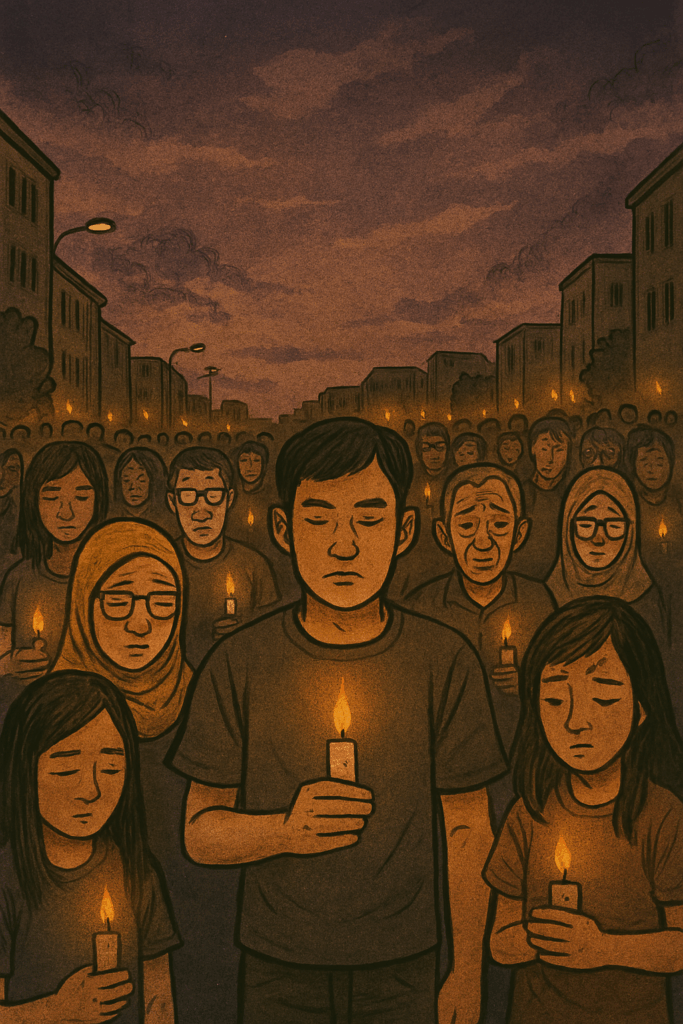
Image courtesy of Microsoft Copilot
By Dr Rahim Said
Last Friday night, Sandakan’s The Piazza, Harbour Mall, was lit up not by cheap party buntings or corporate billboards, but by more than a thousand candles held for #JusticeForZara.
The #JusticeForZara movement started when people began to question the circumstances that led to the death of Zara Qairina Mahathir, 13, in a school in Papar, Sabah, on July 16. Her death had been classified as an accidental fall, but her family had demanded a forensic reinvestigation by exhuming her remains.
Similar gatherings popped up across Sabah. For once, the people weren’t waiting for someone from Putrajaya or Kota Kinabalu to tell them how to feel.
And that, right there, is the problem — at least if you’re a politician in that state.
You see, politicians prefer Sabahans to be docile, patient, and eternally grateful for the “development” that never comes.
The perfect voter is the one who listens, nods, takes the RM50 “travel allowance” on polling day, and disappears quietly back into the kampung.
But here’s the nightmare scenario for them: a thousand people turning up voluntarily, uninvited, and — horror of horrors — united across race, religion, and party lines.
This wasn’t the usual crowd you bus in for a rally, fed with nasi bungkus, and released back to their buses when the speeches end.
No. This was an organic, self-organised show of solidarity. Worse still, it was peaceful and disciplined, which means the usual “public safety” excuse to break it up wouldn’t stick.
If this sort of thing catches on, the whole patronage system is at risk. Imagine if the next time there’s a crony timber licence, a land grab in an indigenous village, or yet another “temporary” water shortage, Sabahans actually showed up again? It would be chaos — for the people used to running this place.
So, watch carefully for the next moves in the political playbook: Perhaps you may discover some politicians suddenly finding time in their busy schedules to “join” vigils; announcement of a “Special Task Force” or “Select Committee” to “study the matter thoroughly”; or the vigil was politicised by some unhappy quarters.
If the Zara vigil fades into memory, the political community wins. If it becomes the seed for a new culture of public accountability in Sabah, they lose.
So, here’s the irony: Zara’s vigil wasn’t about politics. It was about grief, justice, and human decency. But if Sabahans keep showing up like this, the mere act of caring in public becomes political.
For decades, the Sabah strategy for political survival has been simple: keep the rakyat quiet, scattered, and dependent.
The night of the Zara vigil, that strategy cracked. Whether it breaks entirely depends on whether the candles lit in Sandakan stay burning in the hearts of the people — or get snuffed out by the same old tricks.
(The views expressed here are entirely those of the writer)
WE